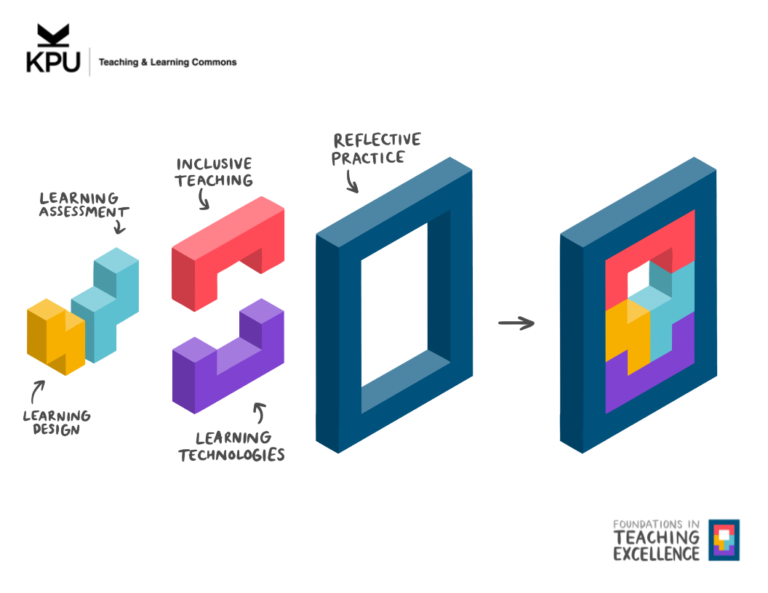Teaching Through Undergraduate Research: The Transformative Power of Active Learning
After the invasion of ChatGPT into our classrooms, you probably asked yourself, “What assignments can I give my students to defeat such an appealing tool, especially for students who have to work extensive hours per week besides studying?” In this piece, I will give you one effective and exciting suggestion: research projects. I will present the benefits of such a tool for students, faculty, and the university and provide a few practical tips on incorporating research into your teaching.
Though teaching is usually understood as a course-based, curricular activity, my understanding of teaching in this piece includes extra-curricular activities, such as faculty-led research projects where students work as research assistants and are mentored by faculty or senior peers on a one-on-one collaboration via hands-on experiences.
Currently, I serve as one of the co-chairs of the Faculty of Arts Research, Scholarship, and Creativity Committee (ARSC). I thank the Teaching and Learning Commons for providing me with a course release in the fall of 2023 to develop resources on teaching through undergraduate research.
Benefits of Undergraduate Research for Students
Through research projects, students become active learners and gain the opportunity to be the protagonists of their own educational journey. Engaging in research allows them to respond to questions they construct themselves based on what they believe is relevant to them. It also enables them to ask new questions as they advance in their research project, thus renovating the continuous cycle of knowledge building.
Research gives students the excitement of discovery (Brew, 2022). You probably remember how excited you felt when you discovered something you did not expect. Still, as instructors, we do not always recognize the importance of such a feeling as a vital component of the learning process and how beneficial engaging our students in research can be for our pedagogical practice. As Osika (et al. 2022, p. 1) point out, “positive learning emotions […] activate the reward system of the brain, make the experience desirable, and aid in focus and attention.” As such, positive emotions are a key motivational component for students to keep engaged in the learning process. As a catalyst of the excitement of discovery, research can be—and has been—a powerful tool to encourage students to feel motivated and actively participate in our courses.
The experience of being in charge of a research project trains students to enhance their sense of responsibility, as they are expected to ensure the project will be completed within the timeline set up, following the guidelines indicated by the institution. The research report or paper resulting from the project is a product that will be associated with the image of its authors, impacting students’ reputations, which is one more reason for them to feel motivated to engage in the knowledge-creation process.
Rewards for Faculty Members
Faculty, too, can learn from the discoveries our students make through their research. In this way, undergraduate research enhances the dialogical communication Freire (2005) refers to in his famous Pedagogy of the Oppressed. For him, education is only liberating when faculty and students engage in a collaborative, horizontal exchange of knowledge based on a critical, problem-solving approach that focuses on the everyday reality of students and faculty to create new knowledge that will serve to transform that reality for the better.
New research projects and community-engaged initiatives can be generated out of a course-based research project. For example, in fall 2023, I taught a course on global inequalities and had my students interview leaders of Global South organizations conducting successful initiatives to tackle the climate crisis. One group of students interviewed a leader of Brazil’s Web of the Peoples, who invited them for a co-op. Inspired by this possibility, I followed up with them and initiated a project for a field school in Brazil, which will hopefully take place in August 2025, to work with the organization and visit historical sites in the country. Such a project would not have been possible without the course-based research project I conducted with my students in 2023.
Benefits for the Institution
It is not by chance that universities worldwide are increasingly encouraging undergraduate participation in research. Brew (2022) associates such an increase with the “challenges of contemporary society, in which knowledge is uncertain, and debates about the nature of truth abound” (p. 72). In this way, expanding student engagement in research is an effective response to these challenges.
Student engagement in research also elevates the university’s profile, increasing student recruitment rates, as research opportunities are an important criterion for parents and prospective students when choosing universities. It also helps students not to give up their degree when they face difficulties because they will feel passionate about what they are doing, which, for the university, means higher retention rates. A study by the University of Michigan concluded that involvement in undergraduate research increased retention rates by 20% (Usher, 2013).
Return to the Community
Teaching, research, and community engagement are the three pillars of education that complement each other and form the core of university life. Through community-based projects, students and faculty can be in touch with and learn more about the reality surrounding the university, which usually broadens their analytical perspectives and raises new research questions.
At the same time, the community benefits from the knowledge produced at or in partnership with the university. When research follows the approach of organic public scholarship, not only are the results shared with the public in an accessible way so people can use them, but the very definition of the research question is done in collaboration with community organizations (Burawoy, 2005).
How to Get Started
Many instructors hesitate to include research assignments in their courses, especially in first and second-year courses, as they believe students are not ready for such an endeavour. However, as Barnett (1997) points out, “[w]hat is required is not that students become masters of bodies of thought, but that they are enabled to begin to experience the space and challenge of open, critical inquiry (in all its personal and interpersonal aspects)” (p. 110). In other words, undergraduate research can be introduced at the very first semester of university (Hensel, 2018).
When having students conduct a full research project is not possible, having them engage in components of the research process can also be useful. For example, you could ask students to conduct a literature review, do an annotated bibliography, or develop a research question for a particular problem. They could also write a research proposal without having to necessarily conduct the research itself in that particular course. It would be already enough for them to create the desire to find the answers for the questions they developed.
To help you get started—or to enhance your practice—KPU’s Teaching and Learning Commons created the Teaching Through Undergraduate Research website, where you can find several resources, including a video with testimonies from our students who participated in research. The most helpful resource is a PebblePed workbook to guide students in their research journey. Specifically, the workbook is distinct because not only does it help them design their research projects, but it also leads them to reflect on the process of building their projects.
I encourage you to watch the video with the students’ testimonies and read the success stories on the website to see how powerful and transformative research can be as a pedagogy. I hope you will explore these resources and consider including—or expanding the role of—research projects in your teaching. Feel free to reach out if you would like to chat about it.
References
Barnett, R. (1997). Higher education: A critical business. Society for Research into Higher Education and the Open University Press.
Brew, A. (2022). Undergraduate research: A philosophical view. In: Mieg, H., Ambos, E., Brew, A., Galli, D., & Lehmann, J. (Eds.). The Cambridge Handbook of Undergraduate Research, 33-45. Cambridge: Cambridge University Press.
Burawoy, M. (2005). For Public Sociology. American Sociological Review, 70: 4–28.
Freire, P. (2005). Pedagogy of the Oppressed. New York: Continuum.
Hensel, N. (2018). Course-Based Undergraduate Research: Educational Equity and High-Impact Practice. Sterling, Virginia: Routledge.
Osika, A. [et al.] (2022). Emotions and learning: what role do emotions play in how and why students learn? Times Higher Education. Available at: https://www.timeshighereducation.com/campus/emotions-and-learning-what-role-do-emotions-play-how-and-why-students-learn
Usher, B. (2013). Preparing Students For the World through Undergraduate Research. TedX Talk. Available at: https://www.youtube.com/watch?v=73nzMbMDOiw



